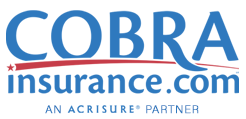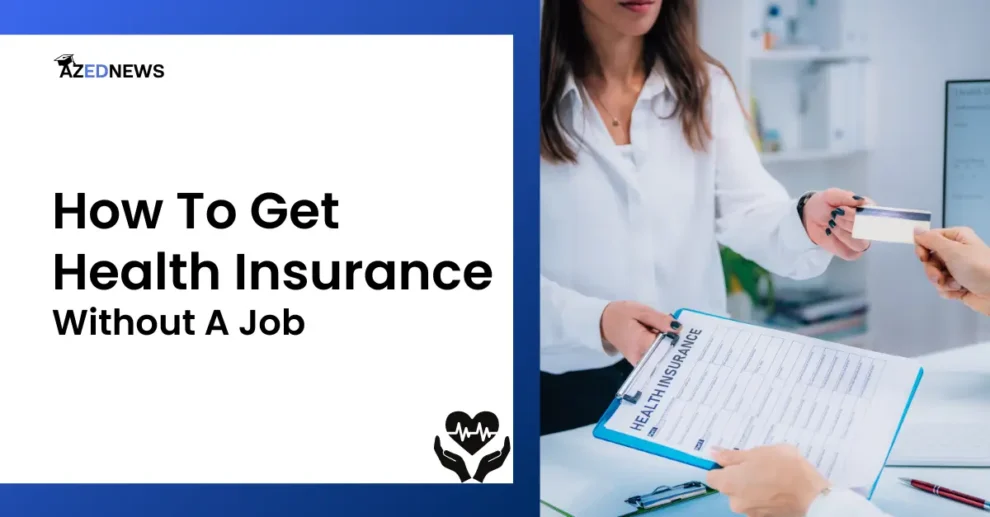For individuals who are self-employed, unemployed, or lack employer-sponsored coverage, discovering how to get health insurance without a job is a common concern. Buying health insurance can often be overwhelming. You must fulfill the qualifying requirements to obtain coverage, and insurance firms have a particular assessment procedure.
Table of Contents
There are various ways how to get health insurance without a job. However, when buying health insurance, there are various factors that people must consider.
You should also be aware that every insurance provider adheres to their underwriting guidelines, so being unemployed might help you obtain the required insurance coverage.
In this blog, we have uncovered all the details on how to get health insurance without a job.
Key Takeaways:
- There are various ways for unemployed people to apply for health insurance. It is always advised that they start as soon as possible.
- Short-term health insurance is for people looking for health insurance that lasts from six months to three years.
- ACA plans, COBRA, Medicaid, and other health insurance options for unemployed people are some of the best options.
- When buying health insurance, people have to consider numerous plans that could help them save money.
Tips On How To Get Health Insurance Without A Job?
1. Start as soon as you can:
It’s quite acceptable to discuss your health insurance benefits and what will happen if and when you leave a company with friendly HR staff even before you leave. You can determine the cost of COBRA coverage and use that information to decide whether to continue with it or go it alone in the market.
2. Collect documentation and pertinent information:
When you’re ready to discuss COBRA, the marketplace, or even Medicaid, you should prepare the following details: your income, the total income of your household, your Social Security number, pay stubs, tax records, details about your current or recently ended health insurance plan, and the number of dependents in your household.
3. Consult with an independent insurance representative:
An independent insurance agent is knowledgeable about the ins and outs of your state’s regulations, in addition to helping you locate the best policy for your needs and budget. Certain states require you to apply via the federal marketplace for insurance backed by the government. Others have their thresholds for qualifying income and a state-based marketplace.
4. Make good use of your emergency money:
Without a job, how much does health insurance cost? That response is sometimes different, as the selections above make clear. But regardless of how you choose to obtain insurance, you must always have an emergency fund!
Furthermore, it’s even more crucial if you’re seeking health insurance because you’re unemployed. Thanks to your emergency fund, you won’t have to worry about unforeseen medical bills for regular checks and doctor trips.
Having three to six months’ worth of costs set aside in an emergency fund will allow you to purchase insurance during a gap without having to worry.
What is short-term health insurance?
Private insurance businesses sell short-term health insurance policies. These usually last up to a year, while some plans last three or six months. This is an option for health insurance for college students with no income.
Compared to other health insurance categories, short-term health insurance plans often have lower premiums since they provide less coverage and benefits.
The insurance provider will inquire about your past medical history and present health when you apply for a short-term health insurance plan. The insurance company may refuse to cover you if you have any pre-existing conditions.
Furthermore, several governments forbid or severely restrict the use of short-term health plans. Consequently, the following states are currently prohibited from purchasing plans:
- California
- Colorado
- Connecticut
- Massachusetts
- New Jersey
- New Mexico
- New York
- Rhode Island
What are occasional medical care insurances?
A silver plan can be a wise choice if you want to pay less out of pocket for your usual care or if you occasionally need medical attention.
Silver plans pay 70% of covered expenses after the deductible and have low premiums. Although the deductible for a silver plan is less than that of a bronze plan, silver plans often have higher premiums.
You also have to select a silver plan if you are eligible for any cost-sharing reductions to reduce your out-of-pocket expenses, such as your deductible, copayment, and annual maximum.
Best health insurance options for unemployed people:
1. ACA Plans:
Health insurance coverage is available through the HealthCare.gov marketplace under the Affordable Care Act, which enables you to compare local alternatives in one location. The ten essential health benefits, such as emergency care, doctor visits, outpatient care, maternity care, hospital stays, mental health care, and prescription drugs, are all included in the comprehensive coverage provided by ACA plans.
For people who meet eligibility requirements based on household income, ACA plans offer premium tax credits and subsidies. You can use tax credits to save money toward health insurance if your household income is less than 400% of the federal poverty threshold. If your household income is more than that amount, you can also save. The only health insurance coverage with this benefit is ACA plans.
2. COBRA:

You might be eligible for COBRA insurance if you recently lost employer-sponsored health insurance due to being laid off. COBRA permits you to maintain the full benefits of your employer’s health insurance. Because you are responsible for paying the entire premium cost, COBRA is pricey.
Employers often do not contribute to the price of a COBRA plan, although they usually pay considerably over half of the insurance premiums for their employees’ health coverage. On average, employers cover little more than $7,000 of this premium; employees are responsible for the remaining $1,400.
Employers who provide health insurance to 20 or more workers are required to offer COBRA, but if your employer is smaller, you can still be eligible for COBRA. States frequently mandate “mini-COBRA” plans for smaller businesses.
3. A spouse’s plan:
If your spouse has health insurance via their job, inquire about being added to the policy by contacting the business’s benefits department. Spouses are not always permitted on health insurance by businesses.
If you lose your health insurance, you usually qualify for a special enrollment term on your spouse’s plan. Instead of having to wait until the plan’s open enrollment period, you can enroll in new health insurance during that particular enrollment time.
Although joining a spouse’s plan usually results in a considerable premium rise, it is still probably less expensive than purchasing COBRA coverage.
4. Catastrophic Health Insurance:
For those under 30 and those experiencing extreme financial difficulties, such as homelessness, catastrophic health insurance is a possibility. Catastrophic coverage is available for purchase on HealthCare.gov, the ACA marketplace.
While providing comparable coverage, catastrophic health plans are less expensive than ACA plans. The fact that catastrophic plans have substantially higher deductibles and out-of-pocket expenses, you are responsible for paying the full cost of medical care up until the plan’s deductible is one of their disadvantages.
Since catastrophic health insurance lacks coinsurance, the plan pays the remaining annual medical expenses after you’ve met your deductible. For a 27-year-old, catastrophic coverage averages $3,120 a year. If you are eligible and over 40, the average increases to $3,804 annually.
5. Medicaid:
If you are eligible, Medicaid is a reasonably priced choice. Depending on your household income, the federal/state health insurance program for low-income individuals provides comprehensive health insurance at little or no cost.
Qualifiable varies by state and circumstance. States may now cover individuals whose incomes are up to 138% of the federal poverty threshold thanks to the ACA’s Medicaid expansion. However, only some states have grown to that extent.
States might also have more significant percentages in particular circumstances.
For example, qualifying standards for children and pregnant women could be less stringent than those for a single adult. In California, children under the age of 18 are eligible for 261% of the poverty level; pregnant women are eligible for 208%, and other adults are eligible for 138%.
Where can you shop for health insurance if you are unemployed?
Numerous health insurance providers are eager to have you as a member. This implies that you’ll have a wide range of possibilities from which to select the one that best suits you. This is where you can begin.
The health insurance marketplace in your state ought to be your first destination while looking for health insurance. While some states, like Minnesota’s MNsure, will have their own marketplace, others will use the federal exchange located at HealthCare.gov. This is the best place for your web browser to land, for several good reasons:
1. Large choice of plans and insurers:
Numerous insurers compete for your membership, whether through the federal exchange or the marketplace in your state. Local, regional, and national businesses offer numerous plans.
2. Plans that are simple to contrast:
Plans are categorized into four “metal” tiers on these marketplaces: Bronze, Silver, Gold, and Platinum. The cost and scope of coverage of the plan increase with the plan’s elevation on the metal scale.
The scale does not assess the caliber of treatment you will receive; it just compares fees and coverage. This facilitates plan comparison by providing a genuine “apples to apples” method of evaluating plans against one another.
3. Save money:
The main reason you should start with your state’s marketplace is to save money with financial assistance. You might qualify for financial assistance that might, in some cases, drastically reduce the amount of premiums you must pay.
Since these may only be obtained through the marketplaces, it’s advisable to determine your eligibility here first.
How to buy directly from a health insurance company?
If you want to compare insurance firms without going through a middleman, you must go straight to the source(s). This entails going to the websites of insurance providers or contacting agents who handle only their plans.
Insurance company websites and advisors have direct access to the most up-to-date and thorough information on their policies, so they can address almost any query you may have. You can easily see which physicians and drugs their policies cover with their assistance. It’s possible to discover insurance plans that need to be provided in state or federal marketplaces and are offered straight from the insurer.
By examining your past expenses and how you now utilize your plan, a health insurance company representative can also assist you in selecting a new plan. In this manner, you can make an informed decision on what you’ll need in the future by drawing on your prior experience. You may be sure you’re enrolling in the best option for you by comparing plans and assessing prices.
How much does health insurance cost without a job?
| Type Of Coverage | Average Monthly Cost |
| ACA health insurance | $509 |
| Spouse’s health plan | $431 |
| COBRA | $703 and a potential administrative fee |
| Unsubsidized ACA plan | $509 |
| Catastrophic health insurance | $282 |
| Short-term health insurance | $171 |
| Medicaid | If you qualify, Medicaid premiums are based on your household income. Costs can be as low as zero. |
Frequently Asked Questions:
1. Can a nonworking person get term insurance?
Non-employed spouses have two options: they can choose combined insurance or a single coverage in their names. In the latter scenario, they can pay an extra premium to be covered under the current policy.
2. Can an unemployed person get life insurance?
An unemployed person can also obtain a life insurance policy. Before granting life insurance to a jobless individual, insurance companies consider a few factors. For example, the insurer may permit an individual to get a life insurance policy if they experience a brief period of unemployment.
3. Can a non-USA citizen get US health insurance?
Only those who are in the country lawfully may purchase insurance through the marketplace. Accordingly, DACA participants and undocumented immigrants are often not eligible for Medicaid, CHIP, or the Marketplace for insurance, but they might be for emergency Medicaid or other state-funded programs.
4. Can you live in the USA without health insurance?
Adults are not required to have health insurance at the federal level. Although having health insurance is not required by law for adults, it is essential to weigh the benefits of having coverage in case of unforeseen medical costs and to safeguard your health and finances.
5. Can you go to the USA without insurance?
The United States of America is not among the nations and territories where travel insurance is mandatory. However, that does not negate the value of removing it.
Conclusion:
If your company provides health insurance, you may be wondering how to obtain health insurance on your own if you lose your job. Fortunately, whether you recently lost your job or haven’t had a job for a while, there are several possibilities to consider.
You have a few choices if you wish to get health insurance without employment. The Health Insurance Marketplace provides medical insurance to unemployed individuals. You might also think about applying for Medicaid or a short-term health insurance plan if you don’t fit the requirements for a Marketplace plan.












Add Comment